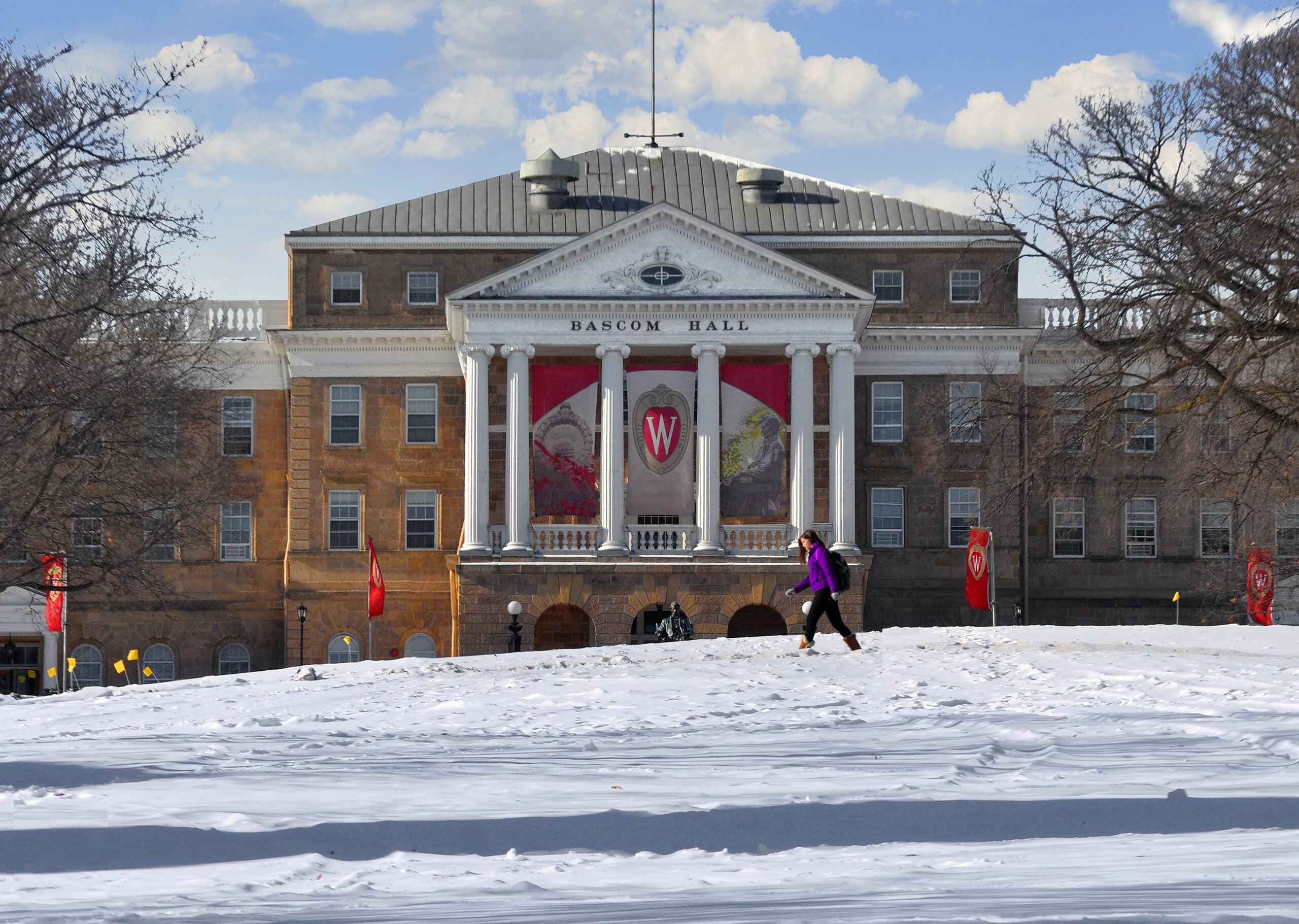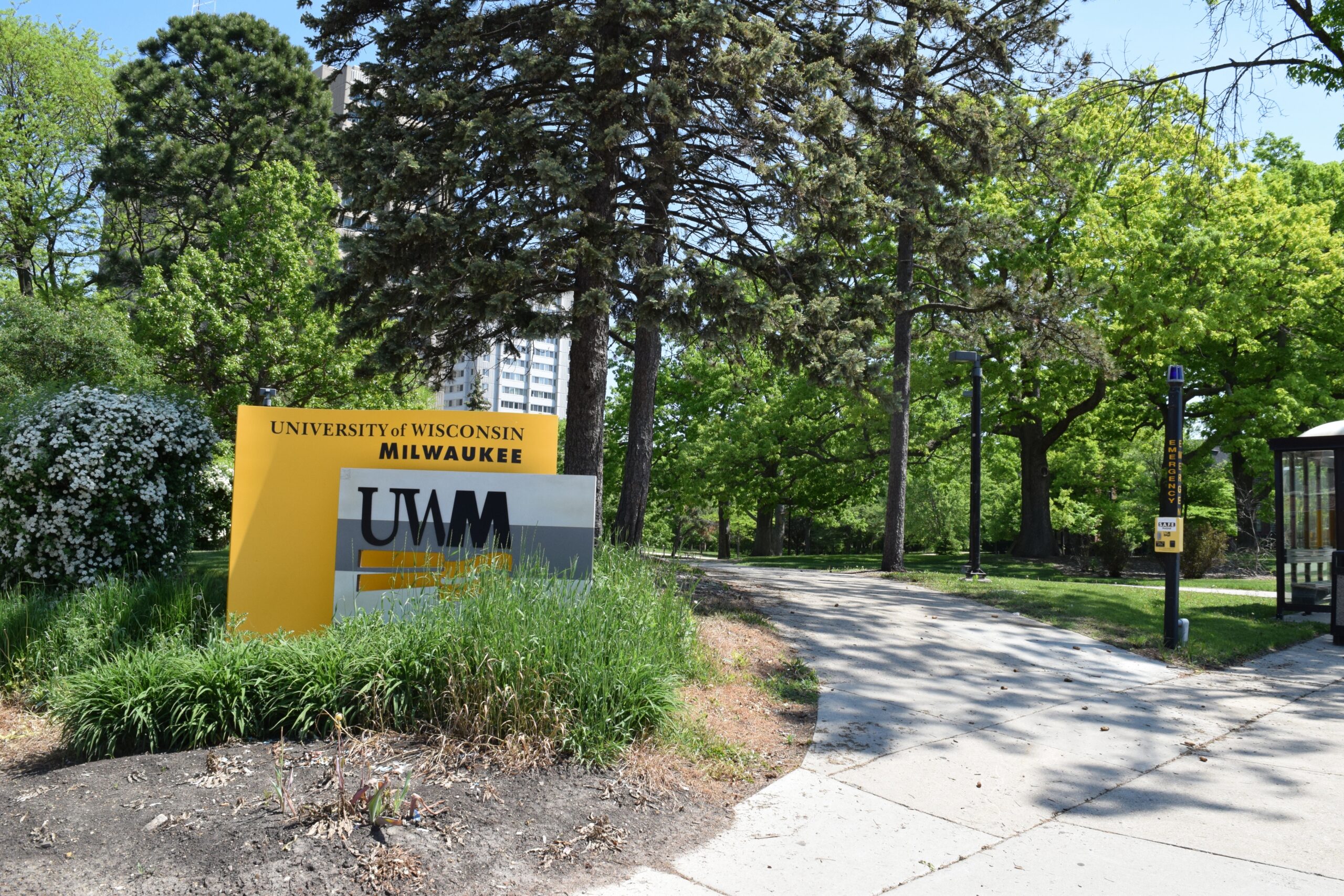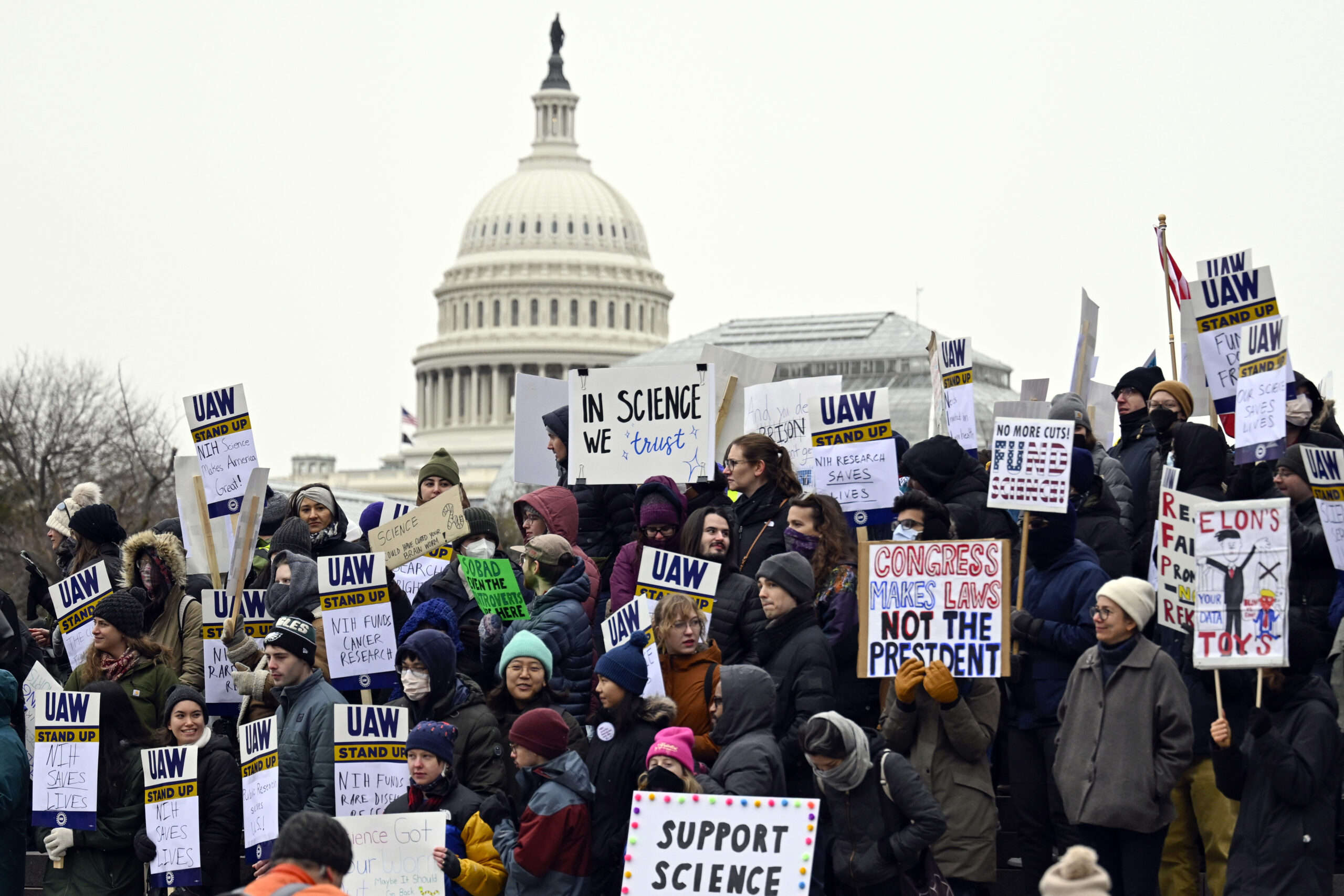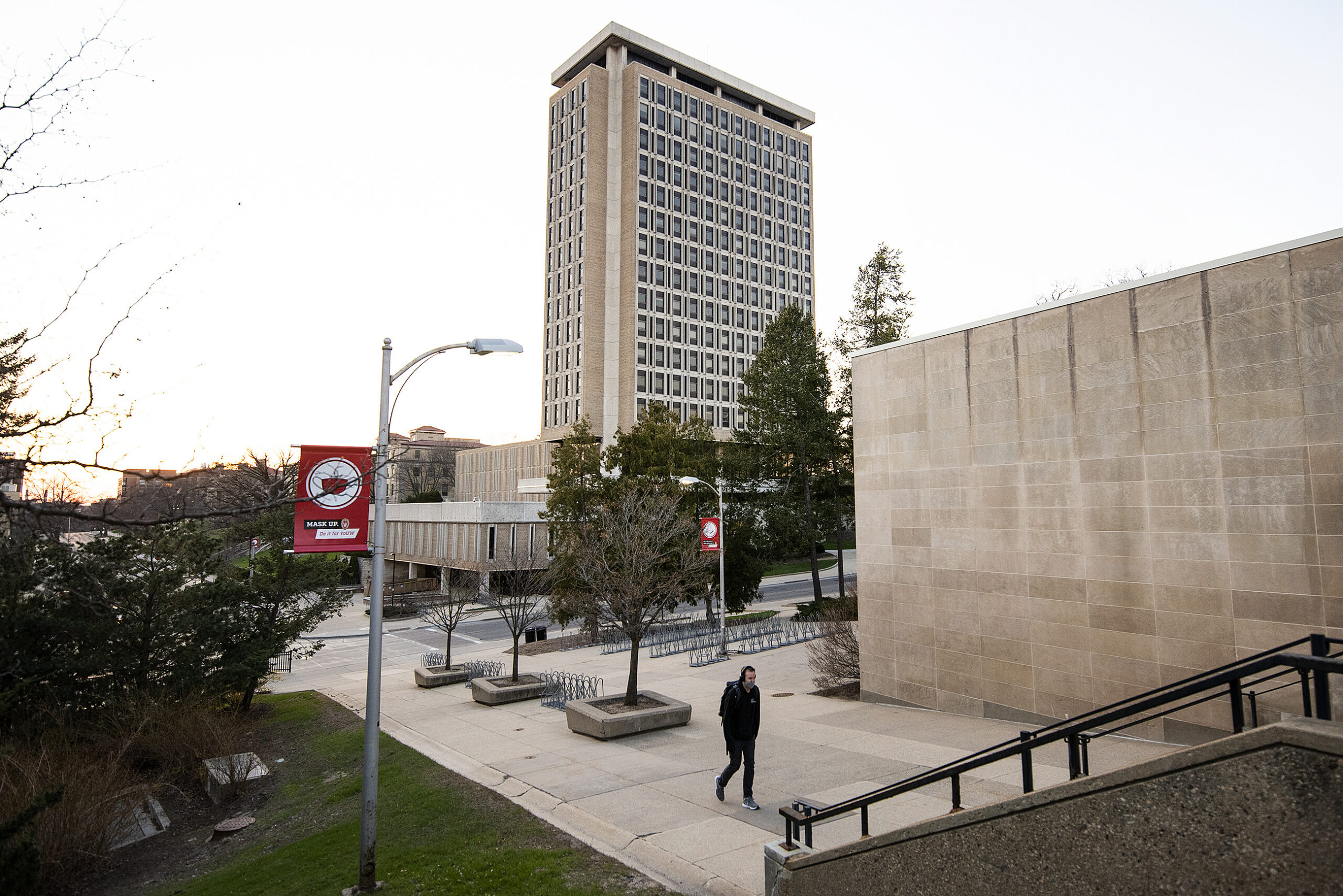Public and private leaders in Milwaukee say increasing funding for the Universities of Wisconsin system will lead to more people living and working in the state.
Last year, Universities of Wisconsin President Jay Rothman announced the system will ask the state Legislature for an $855 million budget increase in the next state budget. Ahead of a panel event in downtown Milwaukee Wednesday, Rothman said Wisconsin ranks 43rd nationally for public funding of four-year higher education.
“To win the war for talent, we simply have to do better,” Rothman said.
Stay informed on the latest news
Sign up for WPR’s email newsletter.
“With that funding, we would be in a better position to innovate, develop talent and partner with businesses and communities,” he added. “Without it, access and affordability will be threatened.”
Rothman said 19 regional business chambers across the state have signed onto a letter in support of the funding increase. The letter says the states that border Wisconsin — Illinois, Iowa, Michigan and Minnesota — all rank within the top 10 for public university funding.
“The Universities of Wisconsin are undoubtedly Wisconsin’s talent producer, and it is time that we all support more investment, so that this great asset that the people of Wisconsin have supported for generations can thrive into the future,” Rothman said. “Our alternative is to allow it to wither on the vine.”
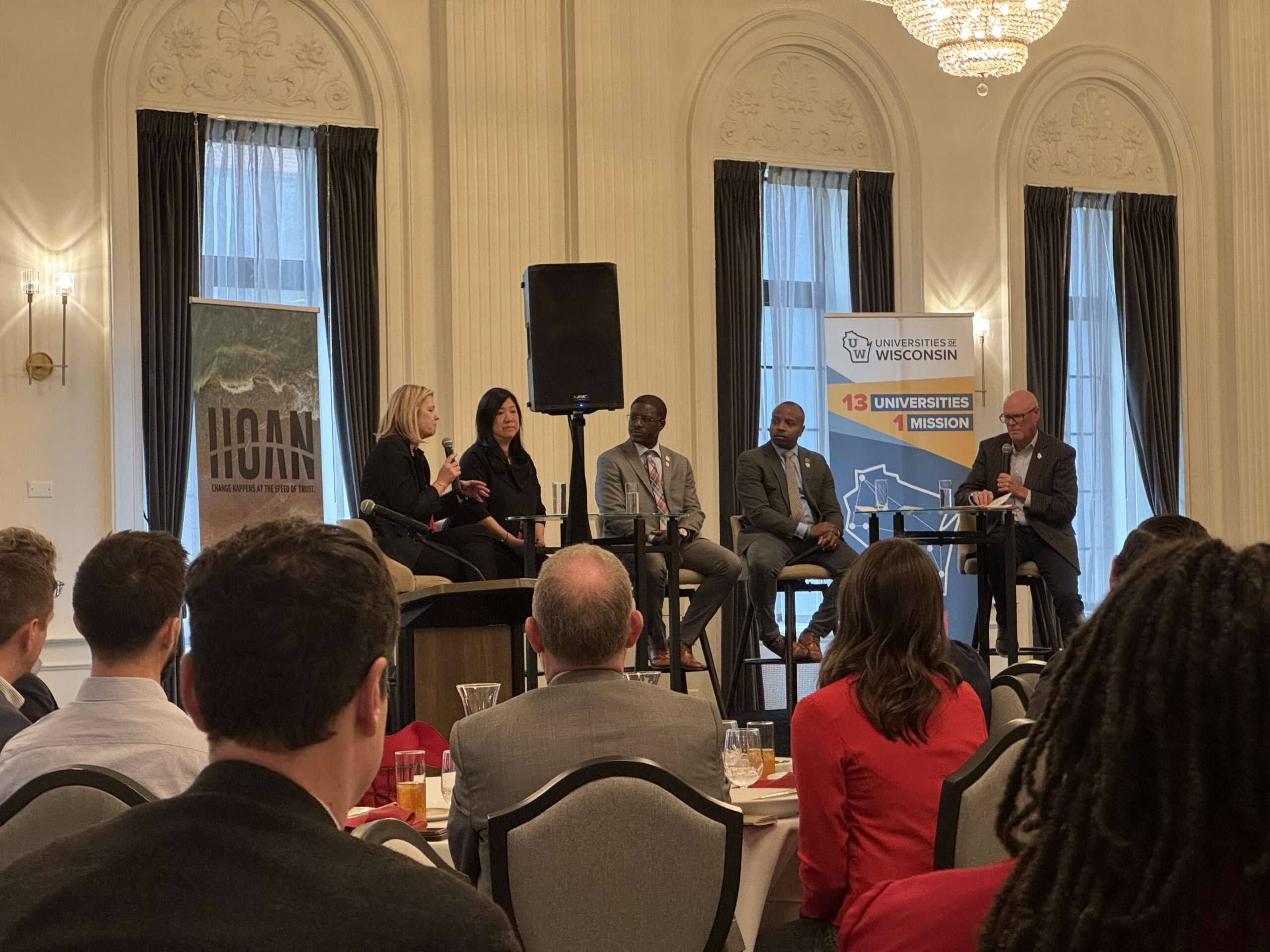
Milwaukee Mayor Cavalier Johnson, who graduated from the University of Wisconsin-Madison, spoke about why he supports the boost to the budget during the panel.
“In terms of talent development, the Universities of Wisconsin and the institutions within the organization have a tremendous, tremendous role to play in boosting our economy, not just locally here in Milwaukee, but in Madison and elsewhere across the entire state of Wisconsin,” Johnson said.
Tina Chang, the CEO of SysLogic, also spoke in support of the budget increase. She said she chose to stay and work in Wisconsin after attending the University of Wisconsin–Madison.
“Big systems like UW-Madison attract attention that we might not get as a state otherwise,” Chang said. “That’s so important, not only for research, but investment dollars into our state, and we need to continue to shout that from the rooftops. ”
In the past two years, enrollment across the system has been increasing. Last year, overall enrollment was up by just over 1,000 students. However, six two-year branch campuses have also either closed or are slated for closure.
Gov. Tony Evers will introduce his next two-year budget proposal later this month. A spokesperson for Evers provided a September statement from the Governor which said Evers supports sending more than $800 million to the system in his next budget.
“Our UW System and public education are a critical part of our state’s workforce, our economy, and our future success,” Evers wrote in the statement. “If we want to keep Wisconsin’s homegrown talent and bring more bright kids to our state—and keep them here, too—we must invest in our UW System statewide. It’s as simple as that.”
Dale Kooynega, the president of the Metropolitan Milwaukee Association of Commerce, also attended the event Wednesday.
“Education is fundamental to what we need for workforce, and also, from a demographic standpoint, there’s tremendous data that shows that adults, or young adults, will stay and work where they go to school,” Kooynega said after the panel.
A analysis by Tallo found a majority of college students said they plan to find a job close to where they attend college.
The push for more funding comes as a recent projection found Wisconsin’s population is expected to decline by nearly 200,000 residents by 2050.
Johnson is pushing to increase the city’s population to 1 million residents. He said he’s heard from many young people in Milwaukee who are moving to other cities before or after college.
“And if we make these sort of investments in our university system, if we show young people that, ‘hey, there’s opportunities for you here, there’s possibilities for you here,’ I think that helps us to be a more competitive place,” Johnson said.
Wisconsin Public Radio, © Copyright 2025, Board of Regents of the University of Wisconsin System and Wisconsin Educational Communications Board.
